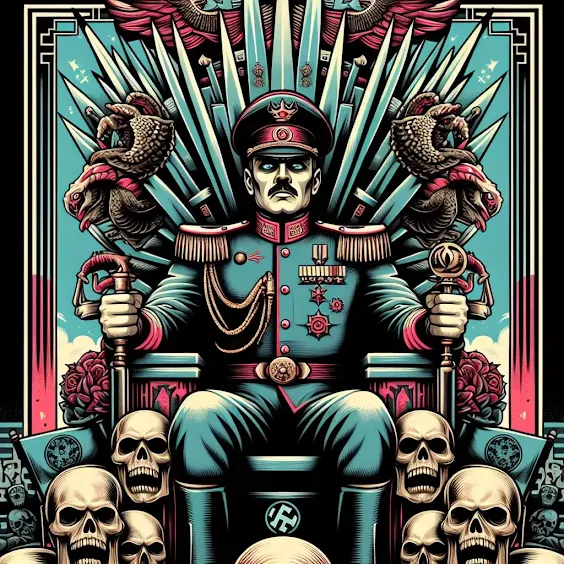Democracy has been found to be defective or highly defective in two thirds of democratic states as assessed by the German Bertelsmann Stiftung Foundation as reported in The Times today. The newspaper's headline is that "Strongmen [are] on the rise as democracy falters".
The concept of democracy in running a nation has slipped "to its lowest standing in two decades".
The above-mentioned foundation assesses 137 countries classed as developing or transitioning. Developing nations are considered to be poorer and transitioning nations are those such as former Communist states in Europe.
Over the past 24 months elections in 25 countries were less free and fair and in 39 countries freedom of expression was subject to tighter controls.
Comment: in the UK freedom of expression is also subject to tighter controls than in the past! Just a point I'd like to make.
A senior expert at the above mentioned foundation, Hartmann, said: "I think every autocratic ruler who portrays himself successfully can be an example for other autocrats. Autocrats learn from each other."
What is an autocrat?
An autocrat is a ruler who holds absolute power. Typically, this term applies to individuals like monarchs or dictators who have unrestricted authority over the governance of a state. They make decisions without external legal constraints or checks and balances from other branches of government. In history, autocratic leaders have often maintained their power through measures such as political repression, control over resources, and the absence of a free press or political pluralism.
Source: Conversation with Bing, 20/03/2024.
Putin
Perhaps the world's greatest autocrat currently is Vladimir Putin who recently celebrated his victory in sham elections; yet more sham elections. No genuine challenger is allowed to run against him.
Autocrats maintain power through "a corrupt and wasteful system that only benefits a narrow elite" according to Hartmann
.
The foundation has an index of the standard of democracy in which 10 is the highest rating as a "consolidated democracy". Russia rates at three . four three and has become a hardline autocracy since 2022.
New autocracies
The new autocracies in the world are:
Tunisia: the current autocrat is Kais Saied, who reversed a trend towards democracy by reversing reforms. In 2021 he issued an emergency declaration assume executive power. He fired 57 judges and arrested journalists and dissenters. That's how autocrats operate.
Kyrgyzstan: the current autocrat is Sadyr Japaroz. He was elected in 2021 after mass protests. He did away with investigative press outlets and overturned legislation limiting the presidential term of office.
Benin: the current incumbent autocrat is Patrice Talon, a businessman. Corruption rules. His government awards contracts to state affiliated companies. He arrests critics and uses anticorruption bodies to investigate opposition according to The Times report.
El Salvador: the current dictator declared a state of emergency in 2022. His name is Nayib Bukele. His agencies arrests gang members without trial and almost 2% of the adult population has been arrested. There is unease about his autocratic approach but he won a second term in February despite the constitution disallowing it because there's been a dramatic reduction in violence in the country.
It is said that the Covid pandemic helped to fuel the rise in autocracies. Singapore is marked down as a moderate autocracy but scores highly in terms of government efficiencies. The badly governed nations such as Eritrea, North Korea and through the are deeply undemocratic.
Revolution
It takes some kind of revolution or people power to undo an autocracy which takes a lot of courage. And if the autocrat has a firm stranglehold on the country in terms of the dissemination of propaganda through television outlets et cetera then it is very hard for people to rise up because they been indoctrinated to believe that the autocrat has their best interests at heart.
Animal welfare implications
I think that there are distinct animal welfare implications in the rise in autocracies. Dictators and autocrats are less likely to be concerned about animal welfare. They are less likely to wish to introduce new legislation to improve animal welfare in their country. Animals come well down the list of concerns in the minds of autocrats and dictators. This leads to animal abuse and a reduction in animal welfare. These are my personal views.
--------------




No comments:
Post a Comment
Your comments are always welcome.
Note: only a member of this blog may post a comment.